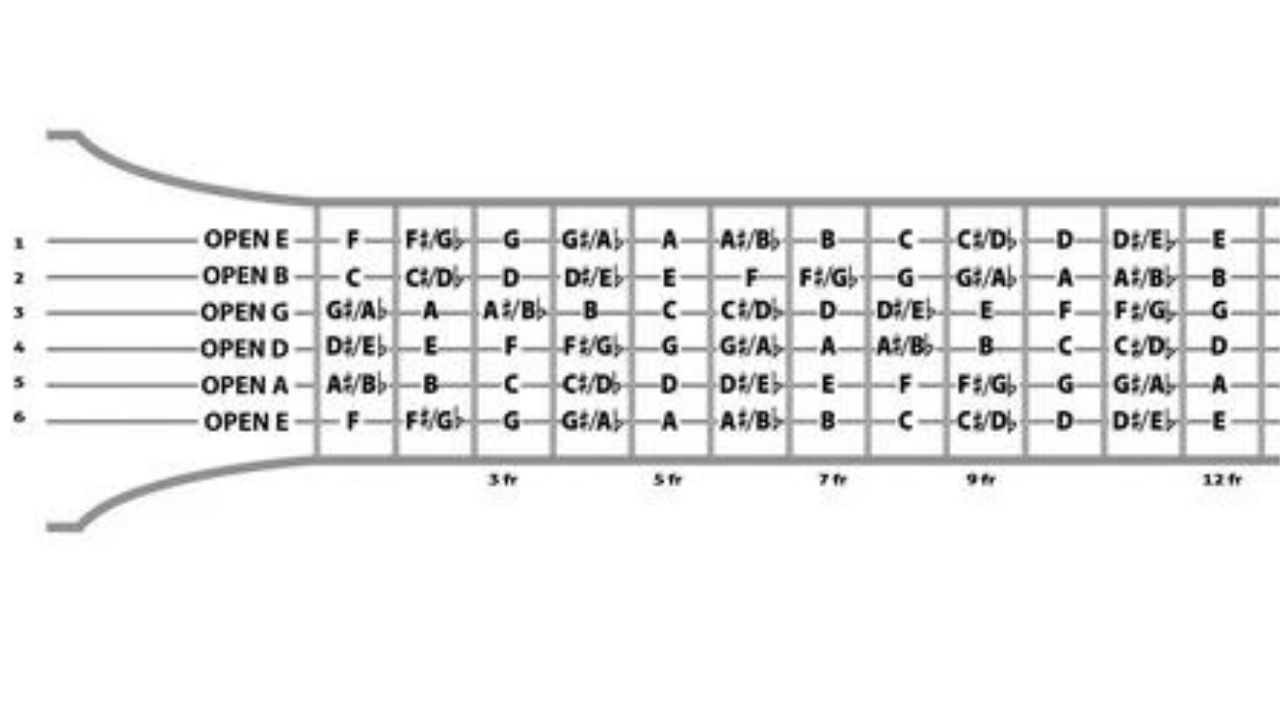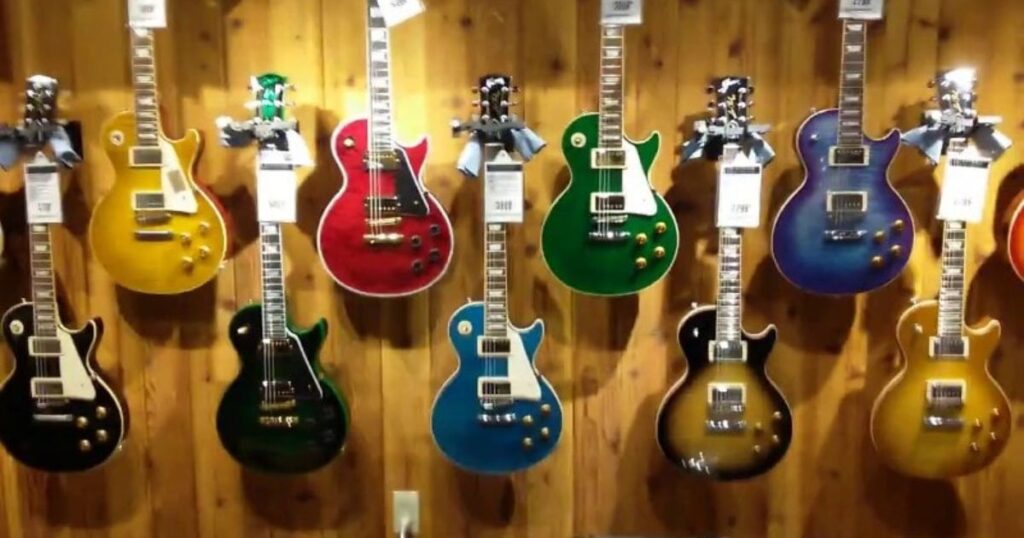How to Make the Most of a Guitar Trade-In Value Calculator
guitar trade in value calculator, If you’re a guitar enthusiast looking to upgrade your instrument or simply clear out some space in your collection, a guitar trade-in value calculator can be an excellent tool to help you determine the worth of your current guitar. With this convenient online resource, you can get an estimate of the value of your instrument, enabling you to decide on trading or selling after doing your research.
Understanding the Components
Condition
One of the key factors contributing to your guitar’s value is its condition. A guitar centre trade-in value calculator considers various aspects such as the overall physical state, any visible wear and tear, functionality of the hardware, and the condition of the guitar’s electronics. Be sure to provide accurate information regarding your guitar’s condition to get the most accurate estimate.
Brand and Model
The brand and model of your guitar play a big part in deciding how much it’s worth as a trade-in. Brands with a good reputation and recognition typically retain their worth better than less well-known ones. Moreover, certain models might have a higher demand in the market, making them more sought after and commanding a higher price. Inputting the correct brand and model information will help the calculator estimate accurately.
Age and Rarity
The age and rarity of your guitar can greatly impact its trade-in value. Vintage or limited-edition guitars often carry a higher price tag due to their uniqueness and collectability. A guitar center harmonica accounts for the age of your instrument and its rarity in the market, allowing you to understand its worth better.
Utilising the Guitar Trade-In Value Calculator

Research and Comparison
Doing preliminary research and comparison is always beneficial before using a specific guitar center trade in percentage. Look for reputable websites or platforms that provide this service and compare their estimates. You can better understand your guitar’s potential range of values by exploring multiple calculators.
Input Accurate Information
When utilising a guitar trade-in value calculator, accuracy is crucial. Take the time to provide detailed and precise Information about your guitar’s condition, brand, model, age, and any unique features it may have. You can ensure that the calculator provides a more accurate estimate of your guitar’s trade-in value by being thorough in your input.
Consider Additional Factors
While a classical guitar appraisal provides an estimate based on standard criteria, it’s important to remember that additional factors can affect your guitar’s value. Factors such as the current market demand, recent sales trends, and the popularity of certain guitar styles or genres can also impact the price. Keep these factors in mind while interpreting the calculator’s estimate.
Using the Guitar Trade-In Calculator Effectively
Using a guitar trade-in calculator effectively can make a significant difference in getting the best value for your instrument. These calculators are valuable tools for musicians looking to upgrade or sell their current guitar. To make the most of them, follow these steps:
Gather Accurate Information: Before using a guitar center used conditions, gather all the relevant Information about your guitar. This includes the brand, model, year of manufacture, and any unique features or modifications. Be as detailed as possible to ensure an accurate valuation.
Determine the Condition: Assess the condition of your guitar objectively. Be honest about wear and tear, scratches, dents, or structural issues. Most trade-in calculators take the guitar’s condition into account when providing an estimate.
Check Market Prices: Research the current market prices for your specific guitar model. Websites like Reverb, eBay, and Guitar Center can give you a sense of what similar guitars are selling for. This research will help you evaluate the accuracy of the calculator’s estimate.
Choose a Reliable Calculator: Select a reputable and well-established guitar center used conditions. Look for calculators from respected guitar dealers, music stores, or industry websites. Avoid lesser-known or unreliable sources, as their estimates may need more accurate.
Input the Information Carefully: When using the calculator, carefully input all the gathered Information. Double-check the make, model, and other details to ensure accuracy. Even a small mistake can lead to an inaccurate estimate.
Consider Accessories and Extras: If you have any accessories, cases, or extras that you plan to include in the trade-in, be sure to include them in the calculator’s input. Some calculators allow you to add these items separately for a more precise estimate.
Compare Multiple Calculators: Don’t rely on just one calculator. Use multiple trade-in calculators from different sources to get a range of estimates. This will help you gauge the fair market value of your guitar more accurately.
Understand the Terms and Conditions: Many calculators are associated with specific dealers or stores. Read and understand the terms and conditions, including fees, shipping costs, and trade-in requirements. This information will affect your final decision.
Consider Trade-In vs. Sale: While trade-in calculators provide estimates for trading in your guitar, consider what you might get if you sell it privately. Sometimes, selling directly to a buyer can yield a higher return, but it may require more effort and time.
Negotiate if Necessary: If you receive a trade-in offer that you believe is lower than the fair market value of your guitar, don’t hesitate to negotiate with the dealer or store. They may be willing to adjust their offer to secure the sale.
Document Your Guitar: Keep records of your guitar’s history, maintenance, and any upgrades. This documentation can increase the perceived value and potentially lead to a higher trade-in offer.
Timing Matters: Consider the timing of your trade-in. Sometimes, dealers offer promotions or bonuses for trading in guitars during specific periods. Timing your trade-in strategically can lead to a better deal.
By following these steps and using a guitar center trade-in effectively, you can make informed decisions about trading in your guitar and ensure you get the best possible value for your instrument. Research, preparation, and attention to detail are key to maximising your trade-in value.
Evaluating the Trade-In Offer
Evaluating a trade-in offer for your guitar is crucial in ensuring you receive fair value. Here are some key steps and considerations to help you evaluate trade-in offers effectively:
Understand the Offer Format:
- Trade-in offers can come in various formats, such as cash, store credit, or a combination. Ensure you understand the terms of the offer and how you will receive payment.
Compare Multiple Offers:
- You may receive several offers if you’ve used multiple guitar trade-in calculators or approached different dealers or stores. Compare these offers to get a sense of the market value of your guitar.
Assess the Offer Amount:
- Evaluate the offer amount in comparison to your research and expectations. Does the offer align with the fair market value for your guitar’s make, model, and condition?
Consider Additional Benefits:
- In some cases, trade-in offers may include extra incentives, such as discounts on a new guitar purchase, free accessories, or waived fees. Take these into account when assessing the overall value of the offer.
Factor in Fees and Costs:
- Be aware of any fees or costs associated with the trade-in process, such as shipping or appraisal fees. Deduct these from the offer to determine the net value you’ll receive.
Evaluate the Reputation of the Dealer or Store:
- Consider the reputation and credibility of the dealer or store making the offer. Reputable establishments are more likely to offer fair deals and better customer service.
Review the Terms and Conditions:
- Carefully read and understand the terms and conditions of the trade-in offer. Pay attention to any fine print, return policies, and warranty information. Ensure you’re comfortable with the terms before proceeding.
Assess Your Own Needs:
- Consider your own needs and priorities. If you’re looking to upgrade to a new guitar, the trade-in value, combined with any incentives, might be more valuable than selling the guitar privately.
Negotiate if Appropriate:
- If you believe the trade-in offer is lower than the fair market value of your guitar, don’t hesitate to negotiate. Politely express your concerns and provide evidence to support your valuation. Some dealers may be willing to adjust their offer to secure the sale.
Evaluate the Timing:
- Timing can play a role in the value of a trade-in offer. Dealers may have sales events or promotions that could increase the trade-in value during specific periods. Consider the timing of your trade-in for potential advantages.
Seek Advice or Second Opinions:
- If you need more clarification about the offer, seek advice from knowledgeable friends, fellow musicians, or online communities. They may provide valuable insights and help you make an informed decision.
Trust Your Instincts:
- Ultimately, trust your instincts and make the right decision for you. If a trade-in offer doesn’t align with your expectations or feels unfair, you can decline it and explore other avenues.
Evaluating a trade-in offer requires research, careful consideration, and negotiation when necessary. You should ensure that your choice maximises the value of your trade-in guitar by considering these actions.
Tips for Maximizing Your Guitar’s Trade-In Value
To help readers maximise their center trade in, you can provide practical tips and strategies in your blog post. Here are some tips to include:
Maintain Your Guitar’s Condition:
- Keep your guitar in great shape by regularly cleaning and polishing it.
- Address minor issues like loose tuning pegs, scratches, or dents promptly.
- Well-maintained guitars are more appealing to buyers and dealers.
Keep Documentation:
- Maintain records of your guitar’s history, including purchase receipts, maintenance records, and upgrades.
- Documentation can provide evidence of your guitar’s value and authenticity.
Know Your Guitar’s Details:
- Be well-informed about your guitar’s make, model, manufacture, year, and unique features.
- Accurate Information ensures a more precise trade-in estimate.
Use Multiple Trade-In Calculators:
- Utilise different online trade-in calculators to get a range of estimates.
- This helps you gauge the fair market value of your guitar more accurately.
Time Your Trade-In Strategically:
- Consider the timing of your trade-in. Dealers may offer better deals during promotions or special events.
- Be aware of the market demand for your specific guitar model.
Consider Repairs and Upgrades:
- Invest in minor repairs or upgrades that enhance your guitar’s appeal and value.
- Consult with a professional luthier for recommendations.
Clean and Organize Accessories:
- Including accessories like cases, straps, or pedals in the trade-in ensures they are clean and well-organized.
- Well-kept accessories can add value to the overall package.
Research Dealer Policies:
- Understand the policies of the dealer or store you plan to trade with.
- Be aware of any trade-in fees, shipping costs, or requirements.
Consider Other Trade-In Options:
- Explore trade-in options beyond dealerships, such as music stores, online marketplaces, or private sales.
- Different platforms may offer varying trade-in values.
Negotiate if Necessary:
- Feel free to negotiate if you believe the initial trade-in offer is lower than your guitar’s fair market value.
- Polite negotiation with evidence to support your valuation can lead to a better deal.
Balance Between Trade-In and Private Sale:
- Weigh the pros and cons of trading in your guitar versus selling it privately.
- A private sale may yield a higher price but can require more time and effort.
Be Patient and Informed:
- Take your time in the trade-in process.
- Be well-informed about your options and confident in your decision.
Consider Trade-In Promotions:
- Keep an eye out for trade-in promotions offered by guitar manufacturers or dealers.
- These promotions can provide extra value or incentives for your trade-in.
Seek Expert Opinions:
- Consult with experts, such as professional musicians or experienced collectors, for guidance on your guitar’s value.
- Their insights can be invaluable in assessing your instrument.
Incorporating these tips into your blog post gives readers a comprehensive guide to maximising their guitar’s trade-in value. When applied effectively, these strategies can help guitar enthusiasts make informed decisions and get the most value from their trade-ins.
Seek Professional Appraisals
For guitars of significant value or those with unique attributes, seek professional appraisals in addition to using a blue book of guitar values. By consulting experts in the field, you can evaluate your guitar’s worth more comprehensively. This can be particularly beneficial if you sell your instrument to collectors or enthusiasts who may understand the market more deeply.
Conclusion
Making the most of a guitar trade-in value calculator involves understanding the components contributing to your guitar’s worth and accurately utilising the calculator. By providing accurate information, considering additional factors, and conducting thorough research, you can ensure a more accurate estimate of your blue book of guitar values. Remember, a trade-in value calculator is helpful, but seeking professional appraisals can provide a more nuanced evaluation of valuable or unique guitars.


Pingback: Unveiling the Magic of the Martin Backpacker Guitar
Reading through your post felt like having a seasoned musician buddy spill the secrets on getting the best deal for our trusty guitars. The step-by-step breakdown, insightful tips, and the insider perspective on the trade-in process create a guide that’s as harmonious as a perfectly tuned guitar.